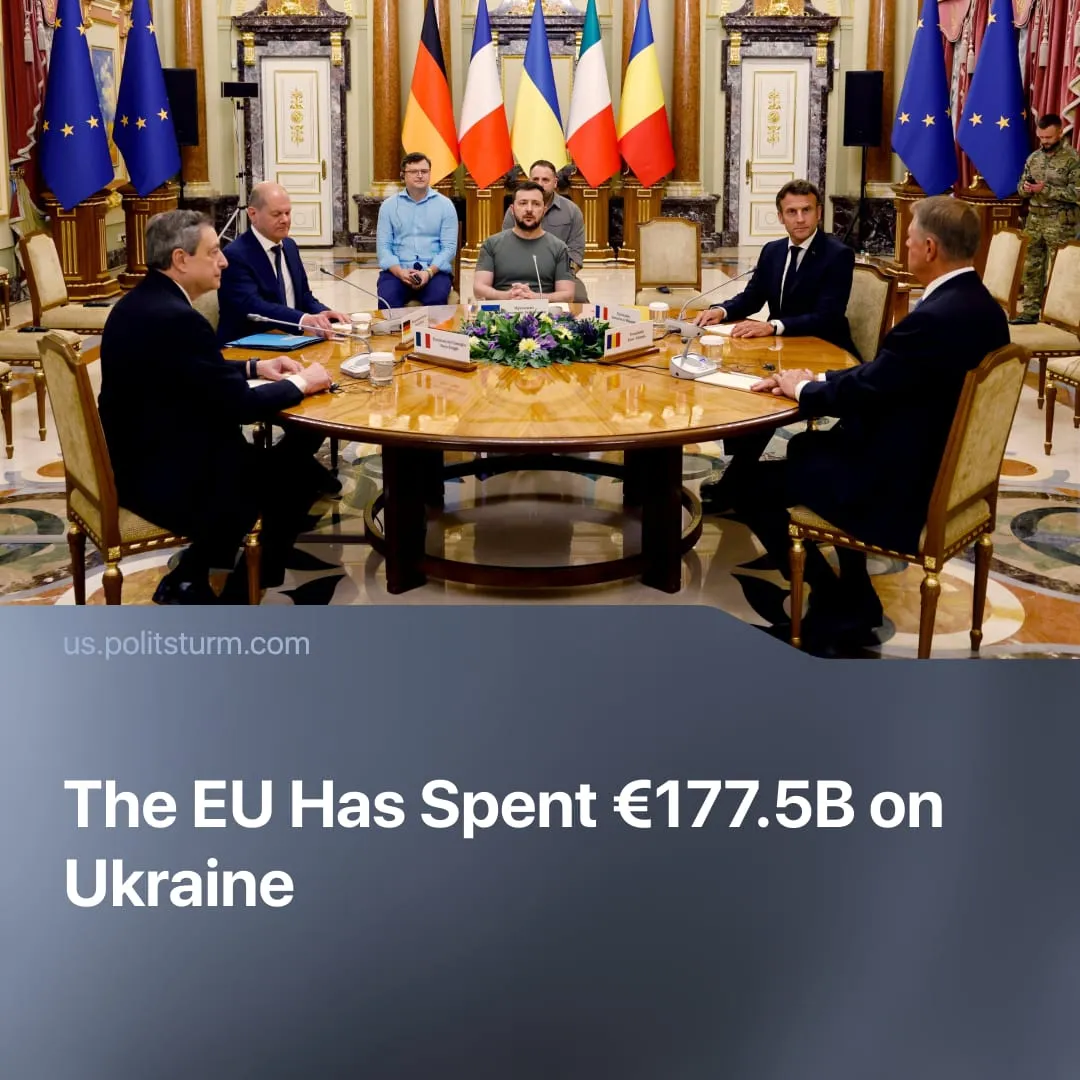The European Union has spent over €177.5 billion on funding Ukraine, marking the largest foreign support programme in EU history.
Details. The European Union and its institutions have channelled around €177.5 billion to Ukraine in financial, military, and humanitarian support.
► Between 2022 and 2023, the EU provided over €30 billion in grants and loans, including an €18 billion “macro-financial assistance” package to maintain “budget stability.” This includes direct EU budget funds and loans guaranteed through the European Investment Bank.
► Military support accounts for €63.2 billion, provided through the “European Peace Facility” (EPF) for 2022–2024. About half has already been disbursed. The EPF reimburses member states for weapons deliveries and funds the expansion of the EU’s defence industry.
► A further €50 billion has been approved through the Ukraine Facility (2024–2027) as a long-term mechanism for state-budget support, reconstruction, and reforms aligned with EU standards. €31.3 billion has already been mobilised.
► About €17 billion has been spent on humanitarian aid and supporting refugees within EU member states.
Context. Driven by imperialist interests, the EU’s support for Ukraine diverts European working class resources and locks Ukraine into dependency on Western finance. Much of the aid takes the form of loans and credit, binding Ukraine to EU institutions, the European Central Bank, and private creditors, while securing political control and access to cheap labour and resources.
► While Ukraine is being integrated into Western finance and markets, European workers face mounting austerity at home. Public debt levels in France, Italy, and Germany have reached historic highs, prompting governments to raise retirement ages, cut social spending, and impose further fiscal “stability” measures.
► In response, widespread public opposition has emerged. Tens of thousands rallied in Brussels in October against budget cuts threatening healthcare, housing, and education. In France, millions protested Macron’s 2023 pension reforms, while Italy and Germany are experiencing escalating strikes across transport and public services.
► Simultaneously, Ukraine has accelerated the privatisation of state enterprises, opening key sectors – energy, transport, and infrastructure – to European investors under IMF and World Bank supervision.


